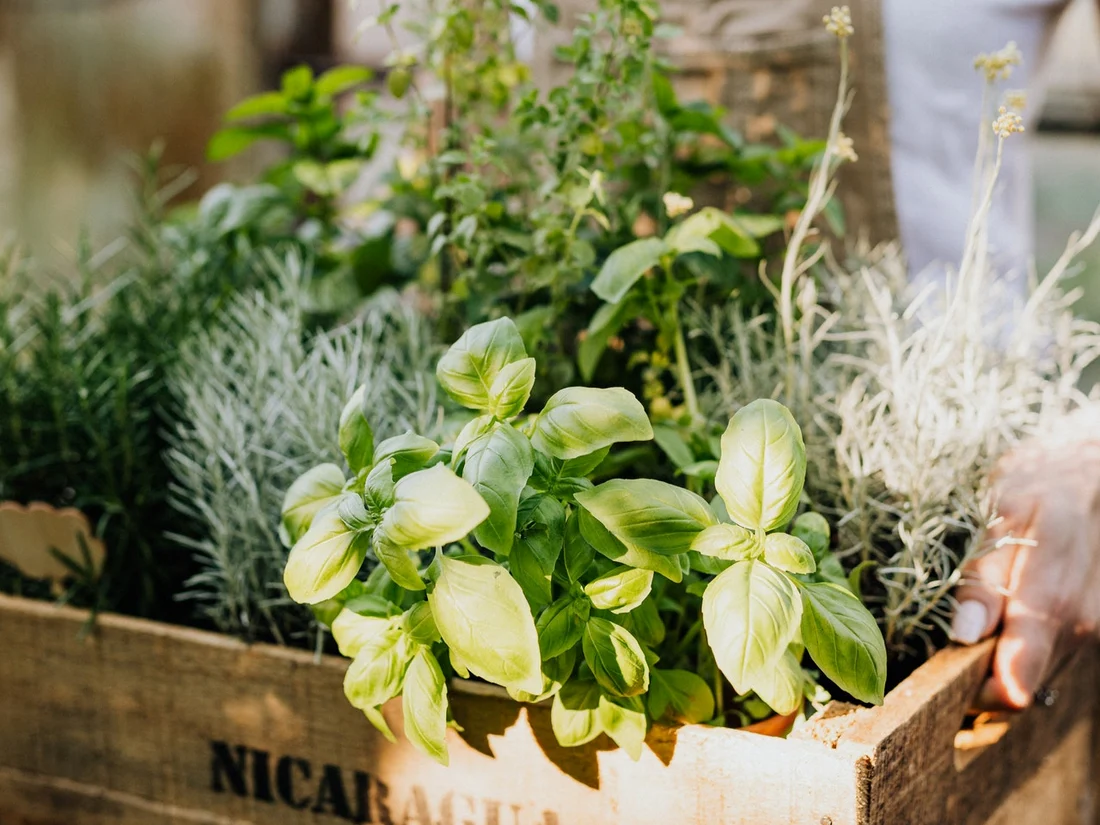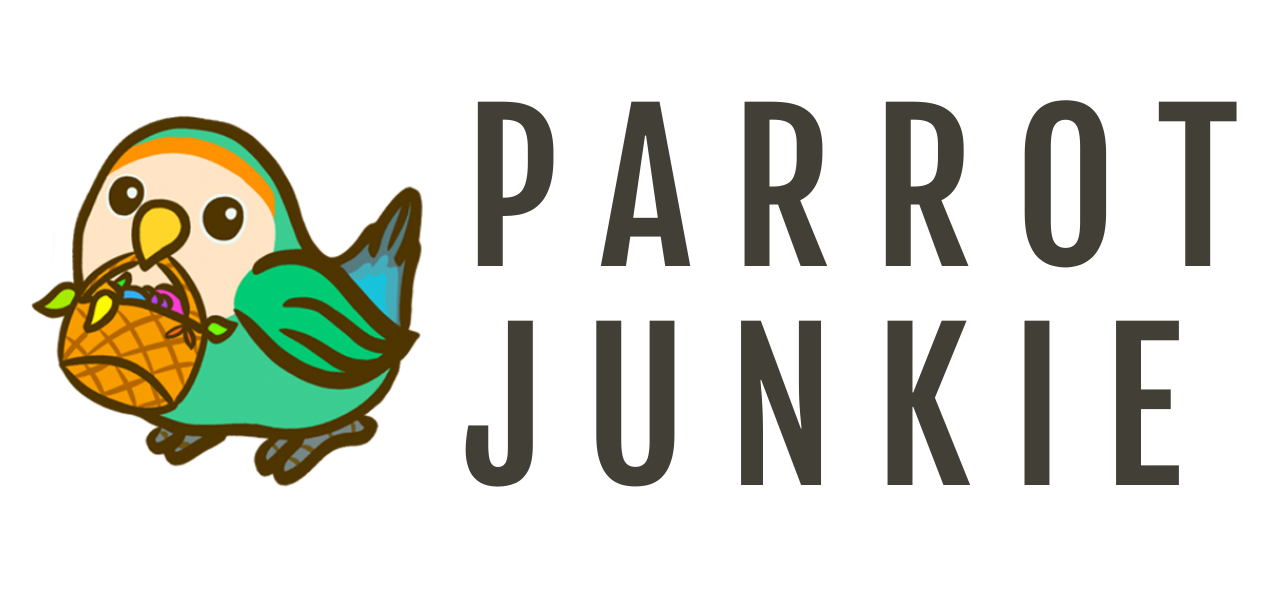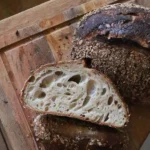
Can Parrots Eat Kitchen Herbs (Rosemary, Thyme, Basil, Parsley, Coriander, Cilantro, Dill, Mint, Oregano) – Safe Or Toxic?
Parrot owners are often on the lookout for a variety of foods to add to their bird’s diet. You may be looking into your fridge or kitchen cabinet and wonder whether the herbs you have in store can be given to your parrots as well.
Giving your parrots kitchen herbs is a great way to introduce something new. Some of the herbs that you can offer your parrot to enrich their daily routine and diet include oregano, basil, parsley, peppermint, thyme, rosemary, dill, coriander, among others. They are the same herbs we normally use in our cooking.
While some herbs are safe and healthy for parrots, others may not be safe for your feathered friend. Quite a number of herbs contain toxins that could harm your parrot’s health. Let’s take a look at some of the common herbs around the house and whether they can be given to your parrots or not.
Jump To Section
What Types of Herbs Are Safe for Parrots?
Let’s find out more about some of the best herbs, which are safe for your parrots and parakeets, and will also add spice to their diet.
Can Parrots Eat Rosemary?

Rosemary is a needle-like evergreen plant that is native to the Mediterranean. It’s a good source of vitamin B6, vitamin A, vitamin C, potassium, calcium, and iron. Studies have shown that rosemary contains carnosic and rosmarinic acids which impart antibacterial, antifungal, and anti-inflammatory properties.
Parrots often enjoy shredding rosemary leaves if you mix them with their regular diet. Despite being a great herb, there’s a chance your feathered friend may not eat the rosemary leaves. This is because rosemary has a bitter taste, and this can turn off some parrots. If you would like them to enjoy the benefits of rosemary, either use it as a toy to encourage them to chew them while you play with them, or cut the rosemary leaves into very small pieces to be added occasionally to their fresh food mixes.
Can parrots eat rosemary? The answer is YES. But like other herbs, rosemary should be offered to parrots in small amounts and not as a staple in their diet.
Can Parrots Eat Thyme?

Thyme is safe for your feathered friend to eat. It’s a wonderful addition to any parrot’s diet. Thyme is an excellent source of vitamin C, vitamin A, vitamin B6, iron, copper, and manganese. It’s also rich in antioxidants, which aid in digestion and also boost the immune system.
Thyme also contains the essential oil thymol, which helps with respiratory problems.
Can parrots eat thyme? The answer is YES. Always make sure to use thyme as a supplementary ingredient rather than a main dish. It does not contain sufficient nutrients for the overall health of your bird. Thyme’s health benefits only focus on the internal organs systems of parrots.
Can Parrots Eat Parsley?

There are different kinds of parsley you can buy. One is called curly leaf parsley (French parsley), and another is called flat leaf parsley (Italian parsley). The flat variant tends to taste more strongly. Parsley is not known to contain any elements toxic to parrots. However, it should be fed to parrots in moderation. Parsley contains oxalic acid and too much of it can limit calcium absorption since oxalic acid is an anti-nutrient. It may not be suitable for parrots that are breeding or already calcium-deficient.
Parsley contains high levels of vitamins and minerals, especially when it’s fresh. It has a crisp, bright taste. This means you can use it to add flavor to your parrot’s diet. You may have to chop it into smaller pieces to add as a garnish, as parrots tend to be picky eaters. There is a chance they may omit parsley in their food if they are not familiar with its taste and appearance.
Both fresh and dried parsley can be offered to your parrot. While drying parsley might cause certain nutrients to be lost, it is believed that dried parsley might have even better cancer-fighting properties!
Can parrots eat parsley? The answer is YES. Always remember that parsley is best used as a supplement and not as the main dish.
Can Parrots Eat Basil?

Basil comes in a variety of forms, namely sweet basil (the one in the image above and the most common one that most of us encounter), Thai basil, and holy basil (Tulsi). Parrots can eat basil, and it can be very beneficial to their general health.
Basil contains vitamin K which is essential for blood coagulation. It also offers a variety of nutrients such as vitamin A, vitamin B6, vitamin C, iron, calcium, manganese, tryptophan, magnesium, and potassium. Basil contains oils that have been known to prevent the growth of various bacteria, hence imparting anti-inflammatory and antibacterial properties. Basil is highly aromatic and can be used to add flavors to a parrot’s diet.
Can parrots eat basil? The answer is YES. Many parrots love basil, but you must monitor how your bird will react to basil since not all parrots are the same.
Can Parrots Eat Coriander/Cilantro?

Coriander is also known as cilantro or Chinese parsley. In the U.S., coriander is often referred to as the seeds of the plant, while the leaves and stems are called cilantro. It is a polarizing herb as many people find it absolutely disgusting, while others like it, resulting in many a comment war on the internet!
Aside from having strong antibacterial properties, coriander is also fully packed with vitamins including vitamins A, C, E, and K. Coriander is responsible for promoting a healthy digestive system and immune system.
Can parrots eat coriander? The answer is YES. Stems, leaves, and seeds can all be given to your parrot. Like with any other herb, just make sure you don’t give your bird too much coriander. I’m not sure if coriander is as polarizing among parrots as it is among humans, but there is no harm in trying to offer some to your parrot!
Can Parrots Eat Dill?

Dill is safe for parrots to eat. Parrots enjoy ripping dill from their cages. So, it’s best to thread dill through your parrot’s cage. Your parrot will get to exercise as well while eating the nutritious treat. Dill is very rich in vitamin C, vitamin A, calcium, and iron. This makes it a good choice as a supplement for calcium-deficient birds, as natural calcium from food is usually much more bioavailable and benefits your birds better than calcium blocks.
Can parrots eat dill? The answer is YES. Dill has the strongest flavors when fresh. It’s best to buy or harvest what you only need to avoid ruining the flavors due to storage.
Can Parrots Eat Mint?

There are different types of mints including peppermint, Mexican mint, spearmint, and curly mint. All members of the mint family are safe for parrots to eat, and are known for antibacterial and anti-inflammatory properties.
Mint is also responsible for easing digestion in parrots and is best known for calming parrots with very anxious behaviors. Mint also makes your parrot’s breath smell great. However, do not expose them to any type of mint essential oil, since it could pose danger to birds.
Can parrots eat mint? The answer is YES, but in moderation. If the parrot accidentally gets the oils from the mint into their eyes or on their skin, they might feel some discomfort. Also, too much mint consumed may irritate the internal systems, so it is best to only provide mint sparingly.
Can Parrots Eat Oregano?

Oregano can be a healthy snack for your bird. It’s a great herb to add to your parrot’s diet since it contains antioxidants that prevent oxidative stress in birds. However, avoid feeding your birds oregano essential oil as they are very concentrated and might lead to some toxicity. Stick to fresh leaves in your parrot’s diet!
Oregano is also very rich in vitamin A, vitamin C, and vitamin K. Like other kitchen herbs, oregano should also be fed in moderation.
Can parrots eat oregano? The answer is YES. Try offering fresh oregano sprinkled or mashed well with the rest of the fresh fruits and veggies you are offering to your parrot.
Ways to Feed Kitchen Herbs to Your Parrots
Kitchen herbs should be fed as a snack and not as a staple in a parrot’s meal. Mixing a pinch of kitchen herbs into your parrot’s diet is the most effective way to feed them to your feathered friend. You can mix them with vegetables and fruits if your parrot is a picky eater.
Make sure you wash the kitchen herbs well before offering them to your parrot. Most kitchen herbs are sprayed with pesticides, which may stick to the leaves. To be on the safe side, buy organic or grow them yourself. Don’t force your bird to eat herbs if it doesn’t like them. You can start by introducing it to fresh herbs, as they may be less concentrated in taste compared to dried ones. Add a very small amount of fresh herbs to your parrot’s diet until they get used to the new taste.
Can Baby Parrots Eat Kitchen Herbs?
Baby parrots can eat kitchen herbs but in very small amounts. Kitchen herbs are a fantastic addition to their diet. Herbs are responsible for enhancing the immune system of baby parrots. Watch your baby parrot for any adverse reactions after feeding him the kitchen herbs. A tiny amount of kitchen herbs is not expected to cause them any problem.
Final Thoughts
Parrots require a variety of foods in their diet, including herbs. Kitchen herbs impart antioxidant and antibacterial properties to your birds, protecting them from bacterial infections and oxidative stress. The only problem is that not all parrots like the taste of herbs and not all herbs are safe for parrots either.
You can string the herbs together into something like a shredding toy to stimulate your bird’s interest. You may also thread herbs through the cage bars or present them well-mixed with their favorite foods in a chop. Your feathered friend will benefit greatly from the herbs as long as you feed them safe herbs and in moderation.
Parrot Junkie www.parrotjunkie.com
Copyright © 2021-2024. All rights reserved.



Louis Fourie
22 July 2024
Thank you for this information, it is useful and I will definitely try it with my African Grey.
Kind Regards
Louis CM Fourie
Parrot Junkie
3 August 2024
Hello Louis, glad that this was helpful for you!